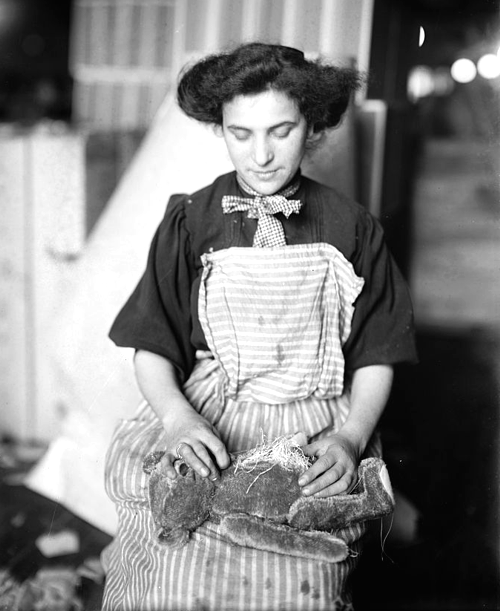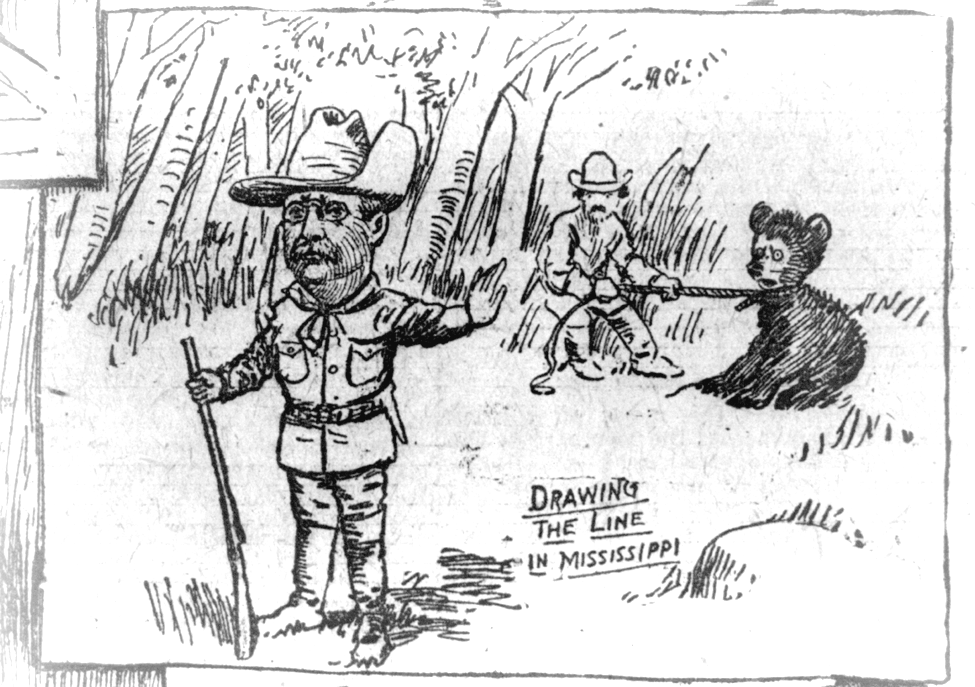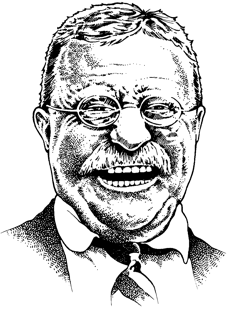The
Teddy Bear
An interesting fact about Theodore Roosevelt is that he was the inspiration for the "Teddy Bear," the popular toy for children. On a hunting trip to Mississippi in 1902, Roosevelt refused to shoot an old bear that other hunters on the trip had chased, captured, and tied to a tree. He said it would not be sportsmanlike at all to shoot a tied up bear. A cartoonist at the Washington Post newspaper who heard the story made the drawing below and it was published in the paper. A store owner in Brooklyn, New York, who saw the cartoon asked "Teddy" Roosevelt if he could use the Teddy name for the stuffed toy bears he wanted to create and sell. Roosevelt gave his permission. The photo on the right shows a factory worker in the early 1900s putting stuffing in the cloth body of a Teddy Bear. |
 |

Photos below: Factory workers in New York City making Teddy Bears in 1915.
The story of the Teddy Bear is just part of Roosevelt's legacy that is still felt today.
It includes the "All-American" idea of a life lived vigorously and courageously, but always
according to the rules of fair play and good sportsmanship. He left many famous
lines in his books and speeches that are often quoted, including this one:
 The poorest way to face life
is to face it with a sneer. There are many men who feel a kind of
twisted pride in cynicism; there are many who confine themselves to
criticism of the way others do what they themselves dare not even
attempt . . .
The poorest way to face life
is to face it with a sneer. There are many men who feel a kind of
twisted pride in cynicism; there are many who confine themselves to
criticism of the way others do what they themselves dare not even
attempt . . .It is not the critic who counts; not the man who points out how the strong man stumbles, or where the doer of deeds could have done them better. The credit belongs to the man who is actually in the arena, whose face is marred by dust and sweat and blood; who strives valiantly; who errs, who comes up short again and again, because there is no effort without error or shortcoming; but who does actually strive to do the deeds; who knows great enthusiasms, the great devotions; who spends himself in a worthy cause; who at the best knows in the end the triumph of high achievement, and who at the worst, if he fails, at least he fails while daring greatly, so that his place shall never be with those cold and timid souls who neither know victory nor defeat.” - Theodore Roosevelt "The Man in the Arena" Speech in Paris, 1910 |
Photos and editorial cartoon images are from the Library of Congress.
Some have been edited or resized for this page.
|
Copyright Notice
Copyright 2009, 2024 by David Burns. All rights reserved. As a guide to the Virginia Standards of Learning, some pages necessarily include phrases or sentences from that document, which is available online from the Virginia Department of Education. The author's copyright extends to the original text and graphics, unique design and layout, and related material. |